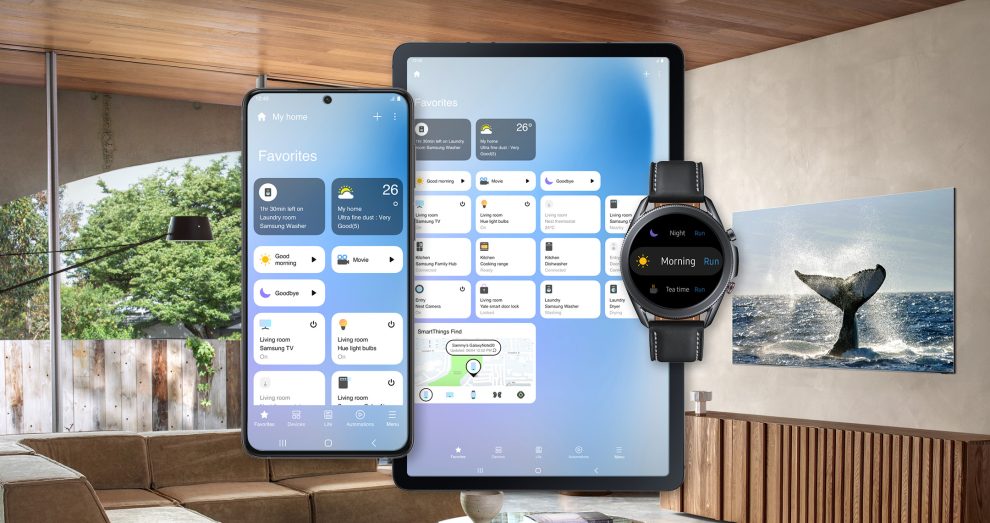Samsung SmartThings, a popular platform for controlling smart home devices, recently announced a new initiative that could have far-reaching implications beyond the living room. The company is exploring ways to leverage its vast network of connected devices to contribute to a smarter, more efficient power grid. This Move positions SmartThings as a potential bridge between the comfort of home automation and the complex world of energy management.
Understanding the Challenges of the Modern Grid
The electrical grid, the infrastructure that delivers power to our homes and businesses, faces several challenges:
- Aging Infrastructure: Much of the existing grid infrastructure is aging and in need of modernization to handle the demands of a growing population and increasing reliance on electronics.
- Integration of Renewables: The rise of renewable energy sources like solar and wind power introduces variability into the grid, making it difficult to maintain a constant supply of electricity.
- Demand Management: Energy consumption fluctuates throughout the day, putting a strain on the grid during peak hours.
These challenges can lead to power outages, inefficiencies, and rising energy costs.
How SmartThings Can Contribute to a Smarter Grid
Samsung SmartThings, with its network of millions of connected devices, presents a unique opportunity to address some of these grid challenges:
- Data-Driven Insights: SmartThings can collect data on energy usage from connected appliances, thermostats, and other devices. This data can provide valuable insights into consumer behavior and patterns.
- Demand Response Programs: SmartThings can participate in demand response programs, where users are incentivized to reduce energy consumption during peak hours. This can be achieved by automatically adjusting thermostats, dimming lights, or delaying appliance usage.
- Distributed Energy Management: SmartThings can potentially facilitate the integration of distributed energy resources, such as solar panels or home battery systems, into the grid, making energy usage more localized and efficient.
By leveraging its connected device network and user base, SmartThings can contribute to a more responsive and efficient power grid.

The Potential Benefits of a Smarter Grid
A smarter grid, powered by platforms like SmartThings, could offer several benefits:
- Improved Reliability: Real-time data and automated controls could help prevent power outages and improve grid stability.
- Integration of Renewables: A smarter grid can better accommodate the variable nature of renewable energy sources, facilitating the transition to cleaner energy sources.
- Reduced Energy Costs: Demand response programs and optimized energy usage patterns could lead to lower energy bills for consumers.
However, there are also potential drawbacks to consider.
Privacy Concerns and Security Risks
The increased use of data for grid management raises privacy concerns. Here’s what needs to be addressed:
- Transparency and User Control: Users need to be clearly informed about how their data is collected, used, and shared for grid management purposes. They should have control over what data is shared and how it is utilized.
- Robust Cybersecurity Measures: Robust cybersecurity measures must be in place to protect user data and prevent unauthorized access to the SmartThings platform.
Security breaches could have serious consequences, potentially disrupting energy delivery or compromising user privacy.
The Road Ahead: Collaboration and Regulatory Frameworks
For the vision of a smarter grid powered by SmartThings to become reality, collaboration between various stakeholders is crucial:
- Tech Companies and Utilities: Tech companies like Samsung and utility companies need to work together to develop and implement secure, user-friendly solutions for grid management.
- Regulatory Bodies: Regulatory frameworks need to be established to ensure data privacy, cybersecurity, and fair participation in demand response programs.
User adoption will also play a key role. Consumers need to be informed about the benefits and potential drawbacks of a smarter grid and be comfortable with their data being used for energy management purposes.
The Future of Smart Home Automation: Beyond Convenience
Samsung’s SmartThings initiative signifies a potential shift in the smart home landscape. Home automation is no longer just about convenience; it can play a role in the broader energy ecosystem. Here’s what the future might hold:
- Evolving Role of Smart Home Devices: Smart home devices might become more than just comfort gadgets. They could actively participate in energy management programs, contributing to a more sustainable future.
- Focus on Energy Efficiency: Efficiency might become a key selling point for smart home devices, with features that optimize energy usage.
- Consumer Empowerment: Consumers might have more control over their energy consumption and potentially benefit from participating in demand response programs.
The path towards a smarter grid powered by smart home devices is still being paved. However, Samsung’s SmartThings initiative highlights the potential for technology to bridge the gap between personal comfort and collective sustainability.
















Add Comment